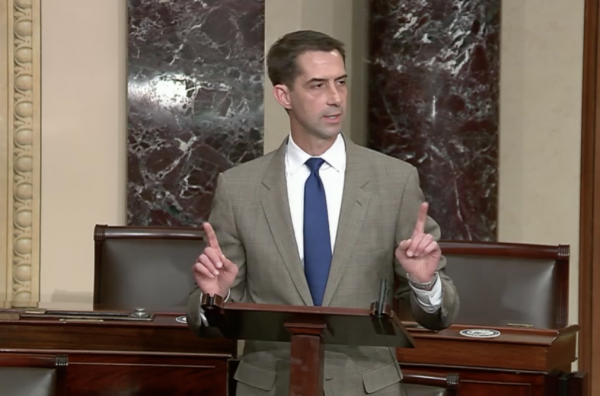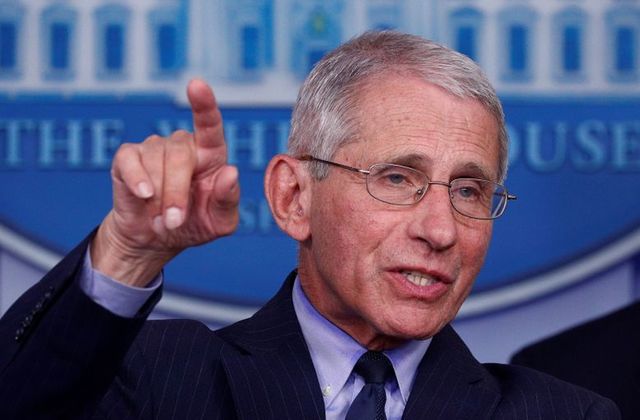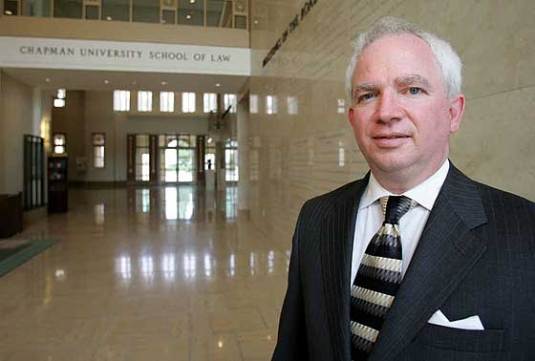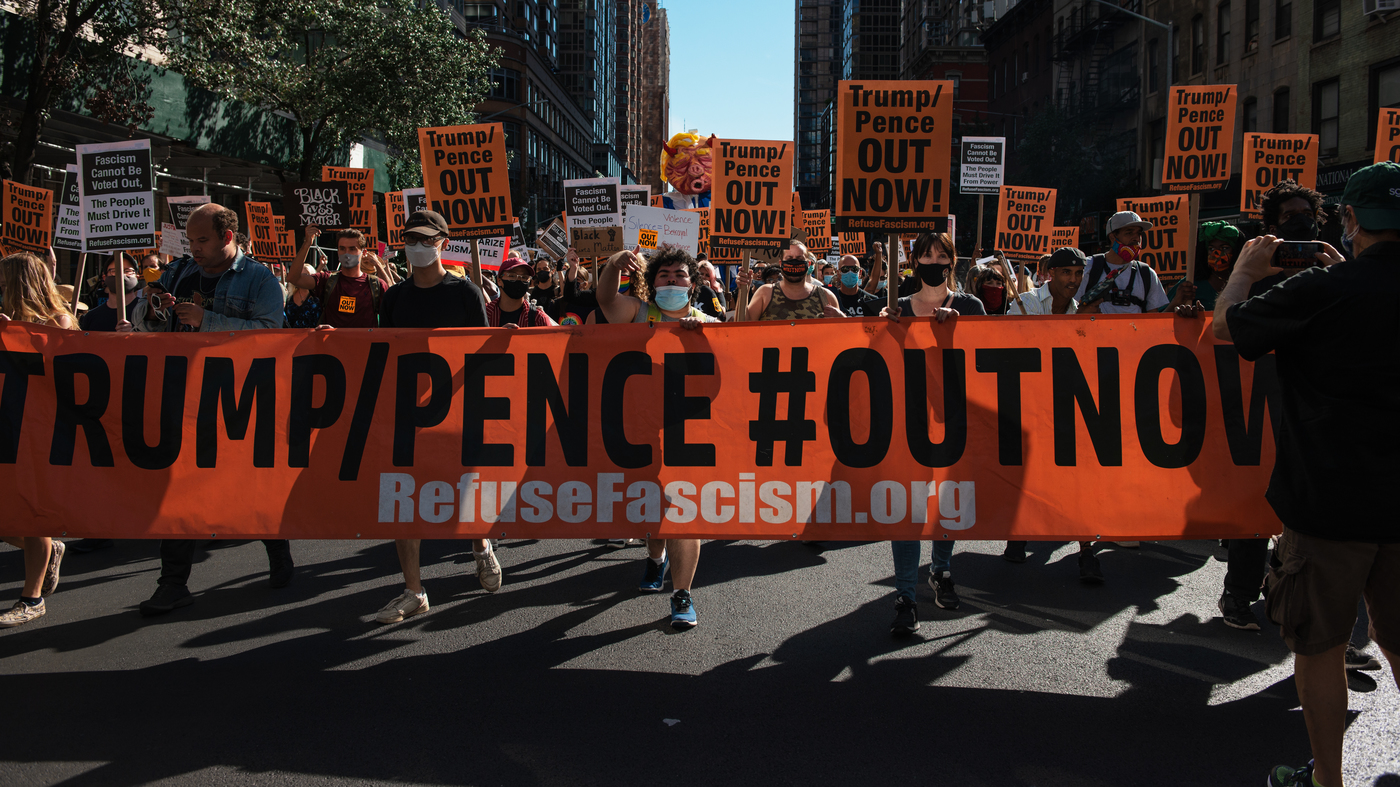A Statement from The American Mind.
Scholarly Debate is Dead

Cause of death: Twitter mobs.
A little opinion article I published in Newsweek last week raising questions about Senator Kamala Harris’s eligibility for the office of Vice President has created quite a firestorm of controversy. For nearly 20 years—based on extensive scholarly research and long before Senator Harris was tapped to be former Vice President Joe Biden’s running mate—I have been questioning whether the current generally-accepted view of the meaning of the Fourteenth Amendment’s citizenship clause is correct. I have published numerous articles about the subject, both scholarly and popular, asking whether it is right to interpret the amendment as meaning that anyone born on U.S. soil is automatically a citizen no matter the circumstances. I have testified about the matter several times before Congress and state legislative bodies, in a wide range of contexts.
I first raised the issue publicly in a brief that former Attorney General Edwin Meese III and I submitted to the Supreme Court back in 2003 in the case of Yaser Esam Hamdi. Hamdi was an unlawful combatant in the Taliban who was treated as a citizen because he had been born in Baton Rouge, Louisiana while his father was in the United States on a temporary work visa.
I addressed similar or in some cases identical questions about citizenship in general, and natural-born citizenship in particular (and hence, about eligibility for the offices of president and vice-president) when Senator John McCain was a nominee for President, when Governor Mitt Romney was a nominee for President, when Senators Ted Cruz and Marco Rubio were candidates for President, and when Governor Nikki Haley’s name was floated as a possible nominee for Vice President.
I have raised the identical concern in the context of efforts by the Internal Revenue Service to levy taxes against British Prime Minister Boris Johnson and to impose financial reporting requirements on and tax French nationals, merely because they happened to be born in the United States while their parents were visiting.
I have raised the same concern about the “citizenship” premise underlying birth tourism, a burgeoning industry involving Russian nationals giving birth in Miami, Chinese nationals giving birth in Los Angeles, and nationals from Mexico and various central American countries giving birth in El Paso, Texas. And I am currently involved in litigation challenging the citizenship claims of the “ISIS bride,” whose father had been a Yemeni diplomat at the United Nations until shortly before her birth in New York.
For those who think such things matter (i.e., the identity politics crowd, which categorizes everyone according to their racial or gender identities): that’s a white British guy, a whole bunch of white French men and women, two men of Cuban/Hispanic origin, a white guy of Scottish ancestry, another white guy of English, Scottish, German, and French ancestry, a woman of Indian ancestry, and a whole lot of children born to white Russian women, Mexican and Central-American women, and Chinese women.
And yet, despite all this, when I raised the exact same concern about citizenship eligibility with respect to Senator Kamala Harris, libelous howls of “racist” and various expletive-laced variations (“f—ing racist,” etc.) were hurled my way by a twitter mob, repeated ad nauseum in various mainstream news outlets.
A professor at the London School of Economics drew the unfounded conclusion that my article was only published because Harris is black and Indian, and therefore was “evidence of a white supremacist ideology and hate speech,” a scurrilous charge for which he apologized after I pointed out the libel laws in Great Britain do not impose nearly as great a barrier as the ones in the U.S. do to successful libel lawsuits by public figures such as me.
What Passes for Argument
The charges of racism are all unfounded, as there is not a single word in my Newsweek article (or any of my other writings) that can even plausibly be described as racist. Indeed, the actual racism (as opposed to the feigned charge of racism levelled against me) is to be found among those who think Senator Harris should somehow be immune from such inquiries because she is partially black. That is really an intolerable double standard, but in today’s “woke” culture, it is increasingly becoming the norm.
Even more troubling to me is how quickly once-serious scholars jumped on the twitter troll bandwagon. Laurie Levenson, a law professor at Loyola Law School in Los Angeles, reportedly told the Associated Press that Harris “was born on U.S. soil…. Full stop, end of story, period, exclamation point.”
Except that it is not a “full stop.” The Constitution’s Citizenship Clause actually contains two requirements, not one—birth on U.S. soil, “and” being “subject to the jurisdiction” of the United States. Serious scholars used to at least acknowledge that there was an additional requirement, even if they disputed my interpretation of it.
A prominent Fourteenth Amendment scholar, Professor Garrett Epps at the University of Baltimore, wailed that I was promulgating a “persistent, utterly fraudulent myth about the Fourteenth Amendment” because “children of noncitizens in the U.S. can be sued, arrested, tried, and imprisoned by state or federal government.” But there is nothing fraudulent or disingenuous about my view that the jurisdiction under which new citizens should be held must be complete—i.e., not compromised by any other national allegiances—rather than partial.
This key distinction between “complete” and “partial” jurisdiction may be lost on the average Twitter troll, but prominent legal scholars should be capable of understanding such things. Indeed, I know full well that Professor Epps is aware of the distinction: we have debated the subject.
While there is genuine scholarly disagreement on the point, it is what we used to call a “straw man” argument to ignore the distinction completely, as Epps does. Serious scholars simply don’t do a victory lap after knocking the stuffing out of a scarecrow of their own making. Rather, they confront the opposing argument on its own terms. And quite frankly, there is much evidence in support of my position.
For example, Senator Lyman Trumbull, a key figure in the drafting and adoption of the Fourteenth Amendment, claimed that “subject to the jurisdiction” of the United States meant subject to its “complete” jurisdiction, “not owing allegiance to anybody else.” Senator Jacob Howard, who introduced the language of the jurisdiction clause on the floor of the Senate, contended that it should be construed to mean “a full and complete jurisdiction,” “the same jurisdiction in extent and quality as applies to every citizen of the United States now”—that is to say, under the 1866 Civil Rights Act, which even more explicitly excluded children born to parents who were subject to a foreign power (14 Stat. 27, ch. 31).
The Supreme Court took the same position the first time it addressed the language of the Citizenship Clause, in the 1873 Slaughter-House Cases: “The phrase, ‘subject to its jurisdiction’ was intended to exclude from its operation children of ministers, consuls, and citizens or subjects of foreign States born within the United States” (emphasis added). Although dicta in that case, it became a Supreme Court holding a decade later in Elk v. Wilkins (1884). Thomas Cooley, the leading constitutional law treatise writer of the day, summarized the matter quite succinctly in his General Principles of Constitutional Law in the United States of America (1880): “subject to the jurisdiction” of the United States “meant full and complete jurisdiction to which citizens are generally subject, and not any qualified and partial jurisdiction, such as may consist with allegiance to some other government.”
Now, Epps may not think these express statements are dispositive, or he may think they are limited to the anomalous situation of Native Americans. But it is simply shoddy scholarship to ignore them altogether on the way to calling a position based on them “crackpot constitutionalism.”
RIP, Scholarship
Some of the twitter trolls made a slightly more sophisticated claim to the effect of: “you twit (or “jackass” or “racist piece of sh*t,” etc.); the Supreme Court settled this more than a century ago in the Wong Kim Ark case.” I pointed out that Wong Kim Ark (1898) involved parents who were, by the Court’s own description, “permanently domiciled” in the United States. The Supreme Court has never actually held that the children born of temporary visitors or illegal immigrants were automatic citizens.
In response, one wag cited (in the course of a 22-part “rebuttal”) a 1939 case, Perkins v. Elg, as “proof” that I was wrong, despite the fact that the opening line of the opinion described the question presented as “whether the plaintiff, Marie Elizabeth Elg. who was born in the United States of Swedish parents then naturalized here, has lost her citizenship and is subject to deportation because of her removal during minority to Sweden, it appearing that her parents resumed their citizenship in that country” (emphasis added).
How anyone could think a case involving parents who were “naturalized” at the time of the birth, which is to say, “citizens,” settled the issue with respect to the citizenship status of persons born to parents who were only temporarily visiting and not citizens, is beyond me. Yet despite this obvious error, the twitter trolls all took a victory lap over the fact that I had been “schooled” by this laughable mistake.
More troublingly, once-serious scholars promptly joined the chorus. Harvard Law Professor Laurence Tribe compared my well-supported (albeit minority) scholarly position to “flat earth theory” and “total B.S.,” according to the New York Times. Apparently Tribe forgot the fact that just four years earlier, he had raised a somewhat similar challenge to Senator Ted Cruz’s eligibility. AT the time, he at last conceded that the matter was “unsettled.”
In the past, numerous legal scholars who disagree with my interpretation on scholarly grounds have at least acknowledged that Wong Kim Ark did not settle the precise question at issue. See, for example:
- Gerard N. Magliocca, “Indians and Invaders: The Citizenship Clause and Illegal Aliens, 10 U. PA. J. CONST. L. 499, 500 n.5” (2008). As Magliocca notes, the principle that any child born on U.S. soil (save to diplomats) is a citizen “does not rest on any judicial holding. It is based instead on dictum from the Wong Kim Ark case and longstanding practice”
- Ronald Rizzo, “Born in the USA but Not A Citizen? How the Birth Visa Can Solve Today’s Immigration Challenges, 27 J. CIV. RTS. & ECON. DEV. 393, 403” (2014). Rizzo writes: “Wong Kim Ark made absolutely no holding regarding children born to illegal aliens and temporary visitors on U.S. soil.”
- David A. Martin, “Membership and Consent: Abstract or Organic?, 11 YALE J. INT’L L. 278, 280-81” (1985). Martin, too, points out that to extend the language in Wong Kim Ark beyond children of lawfully domiciled parents is “dictum.”
- Katherine Nesler, “Resurgence of the Birthright Citizenship Debate, 55 WASH. U. J.L. & POL’Y 215, 235” (2017). Thus Nesler: “the Supreme Court has not addressed a case directly on whether children born to undocumented immigrants on United States soil are automatically granted citizenship by virtue of birth within United States.”
- Katherine Pettit, “Addressing the Call for the Elimination of Birthright Citizenship in the United States: Constitutional and Pragmatic Reasons to Keep Birthright Citizenship Intact, 15 TUL. J. INT’L & COMP. L. 265, 268” (2006). Pettit concedes, “the Supreme Court has yet to decide specifically whether this principle applies to a person whose parents are in the United States illegally.”
- Alberto R. Gonzales, “An Immigration Crisis in A Nation of Immigrants: Why Amending the Fourteenth Amendment Won’t Solve Our Problems, 96 MINN. L. REV. 1859, 1868” (2012). “The Supreme Court,” says Gonzales, “has yet to rule on birthright citizenship or the interpretation of ‘subject to the jurisdiction’ in the context of a child born in the United States to unauthorized immigrants.”
There was a time when all serious scholars would have agreed that this is, at the very least, an open question. But in the modern world of “woke” America, serious scholarly disagreements about unsettled constitutional questions are facilely disregarded as “flat earth theory” and “total B.S.” This is a blatant attempt to silence any scholarly debate about matters that run counter to the official “narrative” of the day, and with it the scholarly search for truth.
I applaud the few scholars who have acknowledged the serious and perfectly legitimate arguments I have raised here and for nearly 20 years, even if they themselves had reached a different conclusion. But when the overwhelming majority of supposedly serious scholars simply regurgitate nonsense that originates in twitter mobs, we have a much greater problem in our country than the eligibility of any single candidate for high office.
The American Mind presents a range of perspectives. Views are writers’ own and do not necessarily represent those of The Claremont Institute.
The American Mind is a publication of the Claremont Institute, a non-profit 501(c)(3) organization, dedicated to restoring the principles of the American Founding to their rightful, preeminent authority in our national life. Interested in supporting our work? Gifts to the Claremont Institute are tax-deductible.
The New York Times and cancel culture versus America.
We are hostages to the clerics of an intolerant faith.
Capitulating to threats and accusations will teach the Left a dangerous lesson.






